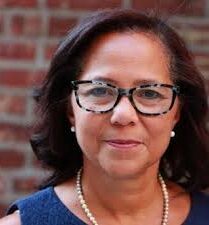Responding to the Opioid Crisis: What are the Opportunities for Funders to Make a Difference?
Posted on January 17, 2025 by Kimberly Lindsay, Krishna J. Chari, Psy.D, Crystal Smallwood, Karen A Scott, MD, MPH, Erin Borla

Dr. Karen Scott is the President of the Foundation for Opioid Response Efforts (FORE). She has over 20 years of experience in healthcare policy, quality improvement, health services research, and public health. Dr. Scott has worked with public health and delivery system leaders to redesign care and promote health equity, quality and patient safety, and population health improvement. She has also led large-scale change initiatives within delivery systems, focusing on public and safety net providers, and the populations they serve.
Dr. Scott’s previous roles include senior leadership positions at The Commonwealth Fund, a national health philanthropy focused on improving access and quality of care. While at Commonwealth, she also served on the board of Grantmakers in Health. Dr. Scott has also held leadership positions in large delivery systems, at NYC Health and Hospitals and New York Presbyterian Hospital. Additionally, Dr. Scott served as Chief Medical Officer in the Office of Assistant Secretary for Health at the U.S. Department of Health and Human Services (HHS). In this role, she worked on a range of public health system issues, including quality of care in the Indian Health Service and infectious disease initiatives. Dr. Scott also collaborated to advance policy on social determinants of health and concurrently served in the role of Interim Acting Director of the HHS Office on Women’s Health.
Dr. Scott is a board-certified physician in preventive medicine. She received her M.D. from Cornell University Medical College and completed a residency in preventive medicine at Johns Hopkins. She received a Master of Public Health from Bloomberg School of Public Health at Johns Hopkins University and her Bachelor of Arts Degree in History and Science from Harvard University.

We’re here to equip you with the tools you need to make a meaningful impact. Contact NCFP for support.
Keep up with trends in family philanthropy. Subscribe to our newsletter.
Gain access to personalized support and a network of peers. Join our community!

